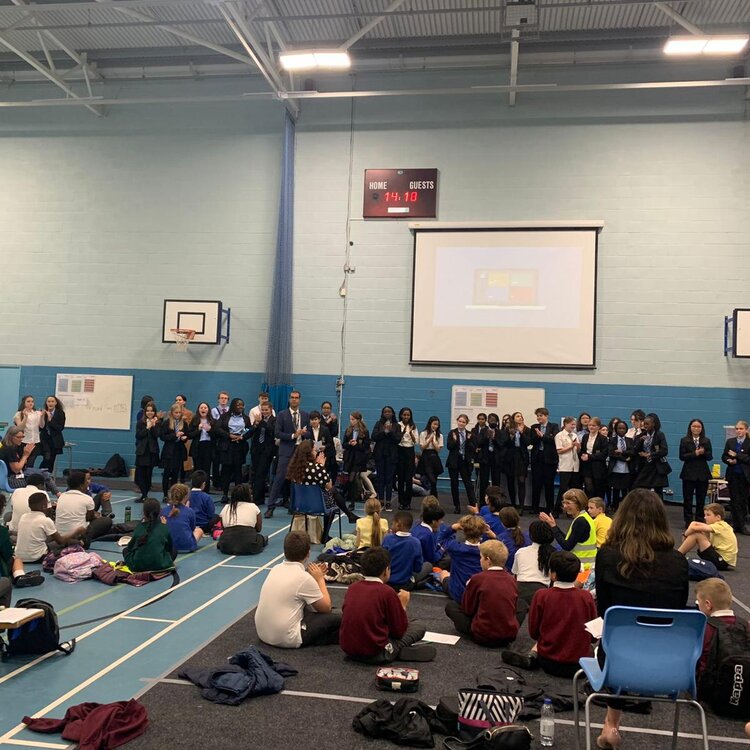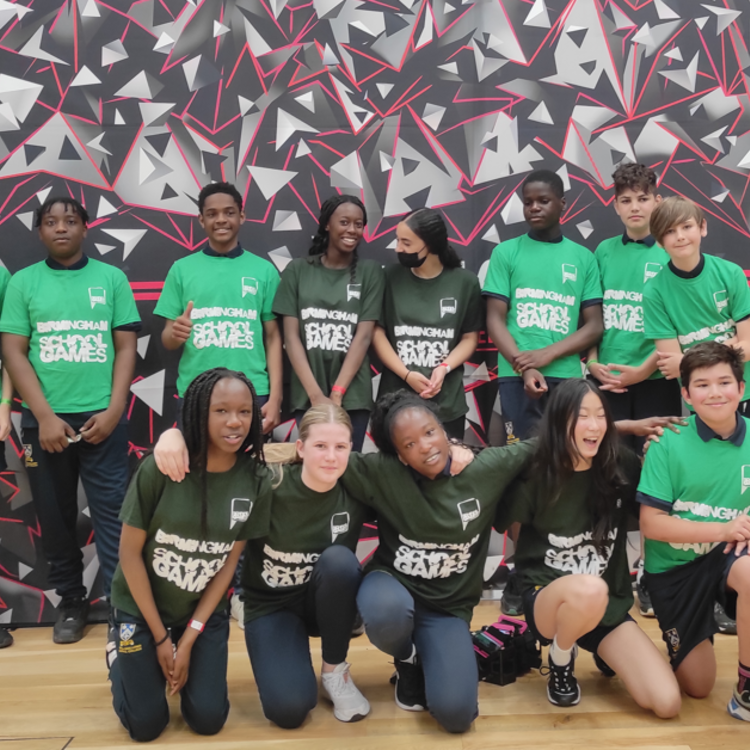Curriculum Information
Computer Science
Subject rationale – Why study the subject? What benefits does it bring?
Computer Science is one of the most democratic undertakings yet devised by mankind. We live in a world now where someone with access to a computer and the required skills, can change the world with a single idea. In the grand scheme of human history, computer science is a young discipline, which means that its ramifications are still being explored, and careers and disciplines therefore exist today, that were considered science fiction just a decade ago. Computers continue to impact the lives of any individual living in a connected world, affecting the way they communicate; interact; learn; perceive the world; contribute; and make a living.
KS3 curriculum overview
We want our key stage 3 curriculum to equip students with the building blocks that have influenced every major invention since the invention of the microchip. To believe that computer science will only teach you how to build a computer is naive and ignorant. Abstraction, decomposition, logical thinking and procedural thinking are all fields of research within computer science, they are also the subconscious process we undertake every time we make a cup of tea.
At the end of a successful key stage 3 career, we want a Bishop Challoner computer scientist to:
- Be able to identify how a problem can be solved computationally;
- Be digitally literate and able to express themselves through technology;
- Be conscious of the impact of technology on the social, emotional, economical and environmental factors of people and our world; and
- Be inquisitive and independent thinkers, able to critically analyse the world presented to them
KS4 curriculum overview
At Bishop Challoner we follow the OCR GCSE Computer Science specification and have done so with great success since 2013. The OCR course offers a great breadth of learning and as part of their study, students develop their critical thinking in the following areas:
- Problem solving
- Systems Architecture
- Networks and network topologies
- System security
- System software
- Ethical, legal, cultural and environmental concerns
- Algorithms
- Programming techniques
- Computational logic
- Translators and facilities of languages
- Data representation
The course is highly demanding but an equally rewarding one that can open many doors for those who complete it. The nature of the course is perfect for those who enjoy being consistently challenged and tested in order to improve their knowledge and ability.
Assessment Overview
The J277 course will be offered for the first time from September 2020 and the assessment process is as follows:
|
Component |
Examination Method |
Weighting |
|
Computer Systems |
Exam |
50% |
|
Computational thinking, algorithms and programming |
Exam |
50% |
*programming is now assessed through content on the second exam paper.
KS4 ICT - Creative Imedia Level 1/2 (From September 2022)
Subject rationale – Why study the subject? What benefits does it bring?
Cambridge National in Creative iMedia will inspire and equip students with the confidence to use skills that are relevant to the digital media sector and more widely. Students studying this subject get to design, plan, create and review digital media products to meet client and target audience demands. We use a variety of computer tools such as Photoshop, Fireworks and Dreamweaver.
Digital media can influence a person and it is something which we encounter on a daily basis. Take for example a billboard, a graphic or even a logo. All these have been designed and finished using a computer using digital tools. This course gives students a practical approach to the design and build of digital products to a given scenario.
The Cambridge Nationals in Creative iMedia will equip learners with a range of creative media skills and provide opportunities to develop, in context, desirable, transferable skills such as research, planning, and review, working with others and communicating creative concepts effectively. Through the use of these skills, learners will ultimately be creating fit-for-purpose creative media products. The Cambridge Nationals in Creative iMedia will also challenge all learners, including high attaining learners, by introducing them to demanding material and techniques; encouraging independence and creativity and providing tasks that engage with the most taxing aspects of the National Curriculum.
The ‘hands on’ approach that will be required for both teaching and learning has strong relevance to the way young people use the technology required in creative media. It will underpin a highly valid approach to the assessment of their skills as is borne out by what teachers tell us. The qualification design, including the range of units available, will allow learners the freedom to explore the areas of creative media that interest them as well as providing good opportunities to enhance their learning in a range of curriculum areas.
What will I study on this course?
The final expectation being they cover 2 pieces of coursework and 1 exam over 2 years:
R093: Creative iMedia in the media industry
Written paper set and marked by OCR, worth 70 points, 1 hour 30 minutes long. 48 guided learning hours.
R094: Visual identity and digital graphics
Centre assessed tasks, OCR moderated worth 50 marks, approximately 10-12 hours. 30 guided learning hours.
R097: Interactive digital media (TBC)
Centre assessed tasks, OCR moderated worth 70 marks, approximately 12-15 hours. 42 guided learning hours.
KS5 Curriculum Overview
We follow the OCR A Level Computer Science programme and have done so with success since 2017. The OCR A Level course is the perfect follow on from the GCSE and provides student with a deeper insight into topics previously discovered at key stage 3 and 4. On top of this it also introduces new topics such as:
- Object orientated programming
- Advanced programming skills such as recursion
- Software development models
- Binary manipulation
- Advanced data structures
- And more…
Entry Requirements
A GCSE grade of 6 or higher in either Maths or Computer Science. Computer science at GCSE is not required if maths grade is acceptable.
Assessment Overview
The H445 course will has been offered since September 2017 at Bishop Challoner and adheres to the following assessment process:
|
Component |
Examination Method |
Weighting |
|
Computer Systems |
Exam |
40% |
|
Algorithms and Programming |
Exam |
40% |
|
Programming Project |
Moderated extended piece of work |
20% |
Revision Guidance
Practice questions from past papers are one of the best methods of revising topics for computer science. This approach, accompanied by creating notes and reading the revision guide / course textbook as a source for information, has proven successful for many of our previous students.
KS5 ICT - Pearson BTEC Level 3 National Extended Certificate in Information Technology
Subject rationale – Why study the subject? What benefits does it bring?
This qualification is designed for learners who are interested in an introduction to the study of creating IT systems to manage and share information, alongside other fields of study, with a view to progressing to a wide range of higher education courses, not necessarily in IT.
When taken alongside other Level 3 qualifications, including BTEC Higher Nationals or A Levels in complementary or contrasting subjects, such as mathematics, physics, science, arts or technology, the qualification gives learners the opportunity to progress to a degree in an information technology discipline or a degree where information technology related skills and knowledge may be advantageous.
This qualification carries UCAS points and is recognised by higher education providers as meeting admission requirements to many relevant courses. As the content is equivalent in size to one A Level, higher education representatives have confirmed that it is appropriate to allow learners to choose their optional units from a wide range so that they can explore their own choice of areas for further study.
The overview of course taught over two years is the following units:-
| Unit Number | Unit Title | Internally Assessed (INT) Externally Assessed (EXT) Guided Learning Hours(GLH) | Assessment Type |
| Unit 1 | Information Technology Systems | EXT 120 GLH | Exam |
| Unit 2 | Creating Systems to Manage Information | EXT 90 GLH | Exam |
| Unit 3 | Using Social Media in Business | INT 90 GLH | Coursework |
| Unit 6 | Website Development | INT 60 GLH | Coursework |
| TOTAL 360 GLH | |||
How to revise a topic
(this is generic and by no means a one size fits all approach)
- On a single sheet of A4, write down everything you currently know about the topic. Do this prior to reading the revision guide or seeking help from previous notes.
- Now consult the revision guide for the topic and add to this sheet, anything you did not know that is necessary – once complete, highlight these points – these are the areas you need to learn.
- Locate questions based around this topic in the past paper pack and attempt to answer them.
- Confirm with the mark scheme as to your success in answering the question.
The end goal of this approach would be that you are comfortably able to produce a piece of A4 for each topic of the course and then apply this information to the past paper questions.
Obtaining feedback for answers
The students who succeed the best in computer science are those who seek constant feedback from teachers, not just in the scope of a lesson. Any work you produce out of lesson such as past paper question answers or programming challenges, you should want to seek feedback for. This can be achieved by:
- Taking work to a teacher during school time.
- Emailing a teacher your answers, questions etc.
Career Opportunities
- Computer and Information Research Scientist
- Computer Network Architect
- Computer Support Specialist
- Computer Systems Analyst
- Database Administrator
- Information Security Analyst
- Network and Computer Systems Administrator
- Software Developer
- YouTuber / vlogger
- Blogger
- Rendering programmer
- Gameplay programmer
- Console programmer
- Games designer
- Technical artist
- Mobile engine programmer
- Recruitment consultant
- UI artist.
Attachments/links/further information
OCR GCSE Computer Science
https://www.ocr.org.uk/qualifications/gcse/computer-science-j277-from-2020
OCR A Level Computer Science
https://www.ocr.org.uk/qualifications/as-and-a-level/computer-science-h046-h446-from-2015
Click here for Frequently Asked Questions
Related News

New 3D Virtual Tour
Related Blog Posts

Global Teacher Prize - nominee

Primary Drone and Cyber security Celebration Day
